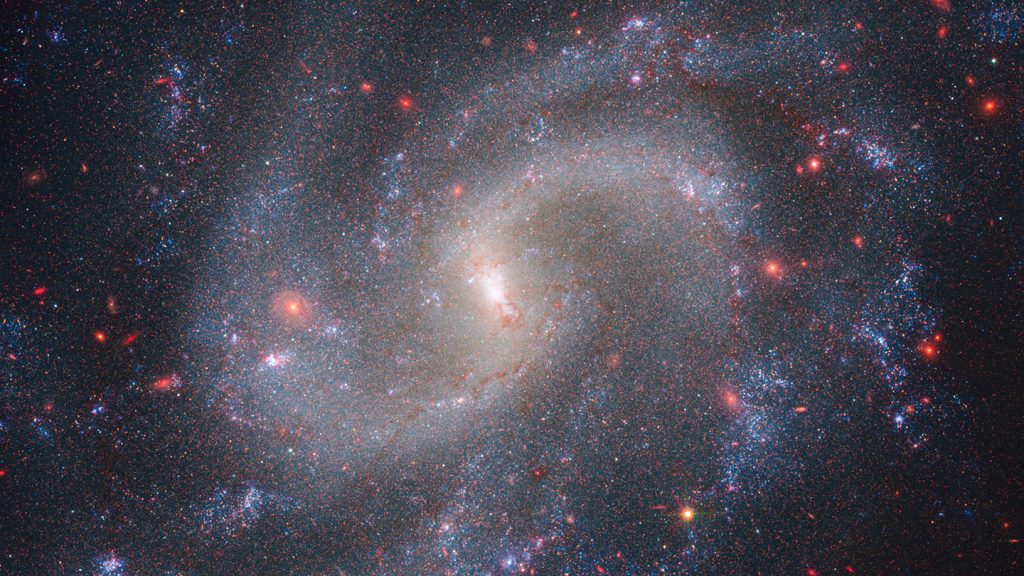The cosmology community has been divided over the Hubble tension, which refers to the conflicting measurements of the universe’s expansion rate obtained using different methods. Scientists have been trying to resolve this decade-long conflict, as it could have significant implications for our understanding of the universe. However, the James Webb Space Telescope (JWST) is bringing hope for a resolution by providing additional observations of certain types of stars and supernovas.
New papers published by two central players in the debate are showcasing some progress towards resolving the tension. While one team does not see strong evidence for the Hubble tension from JWST data, another group believes the data strengthen the case for conflicting measurements. This improvement in agreement between teams regarding distances to nearby galaxies is a significant step forward in resolving the debate.
Despite the progress in agreeing on distances, teams still maintain differing views on the Hubble constant. Additional observations from the JWST are necessary to delve deeper into this issue. Scientists are eagerly awaiting more data from the JWST to provide a clearer picture and possibly uncover systematic uncertainties that could be affecting estimates of the Hubble constant.
The use of variable Cepheid stars to measure cosmic distances is a key aspect of the disagreement between the teams. While there is an offset in the measurements, uncertainties are preventing any definitive conclusions at this stage. Both teams are continuing their research and are optimistic about the potential for further clarifications in the coming years.
The Hubble tension remains a robust area of discussion among physicists, with various other methods also indicating higher-than-expected expansion rates. Many scientists see the tension as supporting the hypothesis that there is more to be understood about the dark universe, including dark energy and dark matter. Resolving the tension could provide valuable insights into these mysterious components of the cosmos and lead to a more comprehensive understanding of our universe.


